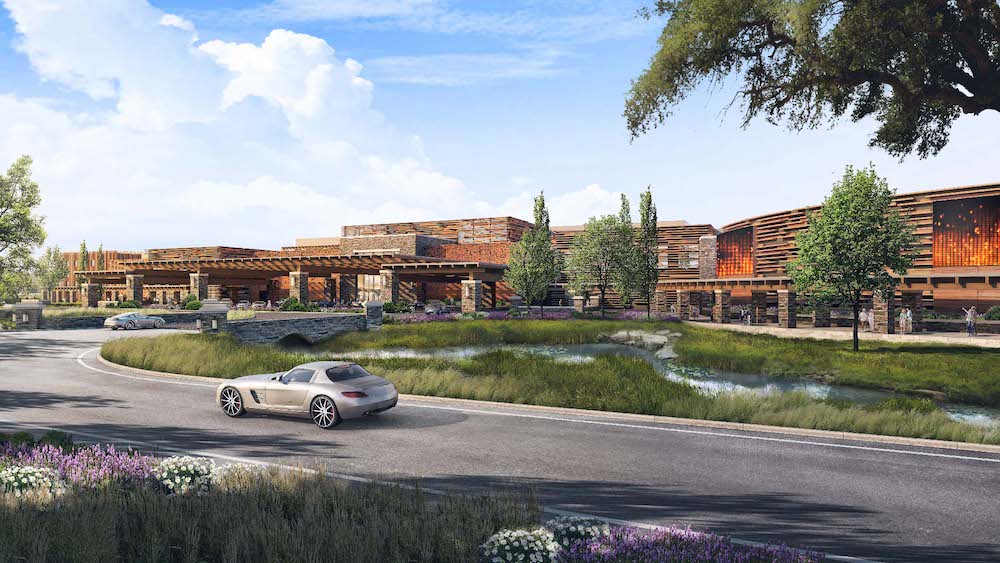
- Details
- By Chez Oxendine
- Gaming
Two proposed casino projects by Native American tribes in northern California face mounting opposition from local municipalities, other tribes, and now Governor Gavin Newsom.
The projects, one by the Scotts Valley Band of Pomo Indians in Solano County and another by the Koi Nation in Sonoma Country, have sparked intense debate over land rights, tribal sovereignty, and economic development. Both tribes argue that their proposed casinos would provide important economic opportunities and promote self-determination for their citizens.
But the plans have drawn opposition from neighboring tribes and local municipalities, who raise concerns about ancestral homelands, environmental impacts, and the expansion of gaming into areas not traditionally designated for such activities. Now, Newsom has weighed in as the proposals move to the environmental assessment phase, urging the Department of Interior to “not move forward” with either project.
Prior Tribal Business News reporting touched on the Scotts Valley Band of Pomo Indians’ plan to open a casino in Solano County, Calif., following an application to take a 128-acre plot of land into federal trust. That trust acquisition has since met resistance from another tribe near the area, the Yocha Dehe Wintun Nation, and Solano County administrators, per a report from California publication The Daily Republic.
The Yocha Dehe Wintun Nation asserts that the land proposed for acquisition is part of their ancestral homelands, and that the Scotts Valley Band, whose headquarters is 100 miles away, has no such claim to the property.
Speaking at a press conference Aug. 21, Yocha Dehe Wintun Chairman Anthony Roberts said the Bureau of Indian Affairs was “fast-tracking” an environmental assessment without input from tribes in the area or sufficient time for public comment. (The public comment period for the project ended this week after 45 days.)
“Over the generations, (our) people have grown sadly used to federal decision-making that undermines our way of life,” Roberts said. “But we never expected it to come from one of our own, or from a federal government that purports to respect tribal sovereignty and rights.”
Roberts called the environmental assessment “deeply flawed, prepared in haste, under cover of secrecy, and without the Indigenous knowledge only our people can provide.”
Another trust acquisition application, supporting the Koi Nation’s proposed $600 million casino in Sonoma County, also faces county and tribal opposition as well, per a report from a local media outlet, The Press Democrat.
The Sonoma County Board of Commissioners passed a resolution in April that opposed the Koi Nation’s project, citing support from five tribes in the county in addition to concerns about existing zoning on the proposed property.
Newsom wants projects halted
In mid-August, Newsom’s office sent a letter to Department of Interior Assistant Secretary for Indian Affairs Bryan Newland, requesting the projects be halted and re-evaluated. The California governor’s concerns center on “the expansion of gaming into land that is not currently eligible for gaming.”
“[T]he voters who legalized tribal gaming were promised that such gaming would remain geographically limited,” the letter reads. “This historical context underscores the importance of striking a careful balance between the potential benefits of expanded tribal gaming and its potential impacts on surrounding communities.”
The letter earned praise from the federally recognized Lytton Rancheria of California, per a public statement issued by the tribe. Tribal Chairperson Andy Mejia thanked Newsom’s office for “voicing concerns” regarding the two projects.
“Unfortunately, these two projects are being recklessly advanced in an unprecedented way without important safeguards – which could have disastrous consequences for the local environment and surrounding communities,” Mejia said in a statement. “Both of these projects are opposed by the Native peoples actually Indigenous to these sites and supported by tribes from outside Solano and Sonoma Counties."
Newsom’s office notes that both properties are not currently linked to the reservations of the tribes applying for land to be put into trust. Federal law, the office writes, normally prohibits gaming on new, disconnected trust lands. Exceptions can be made when Interior has determined a new gaming operation to be in the applying tribes’ best interest, as well as avoiding detriment to existing communities in the area.
In both cases, Gov. Newsom’s office alleges that Interior’s review of those concerns has skipped past the aforementioned “important safeguards.”
Newsom’s office questions the historical connections of the Koi Nation and Scotts Valley Band to the property in their respective property proposals, and asks the Interior not to move forward with either project.
The Koi Nation asserts that Newsom’s office has fundamentally misunderstood the law.
“Project approvals from the Department of the Interior’s Bureau of Indian Affairs would not represent a departure from precedent,” Dino Beltran, vice chair of the Koi Nation, said in the statement to The Press Democrat. “To the contrary, the Indian Gaming Regulatory Act’s restored lands exception was designed precisely to correct historic wrongs [toward] landless tribes like the Koi, depriving them of opportunities to develop and achieve economic self-sufficiency.”
Tribal Business News reached out to both the Koi Nation and the Scotts Valley Band of Pomo Indians on Friday, but did not hear back before this story went live.
